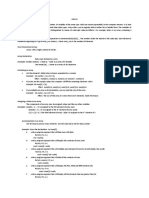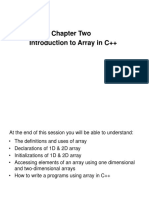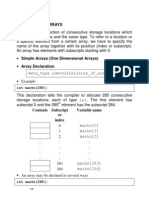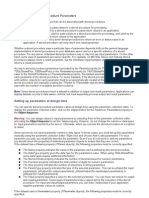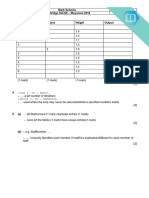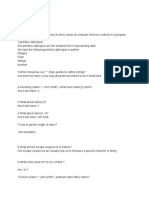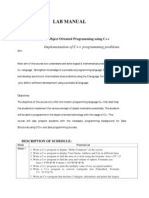0% found this document useful (0 votes)
38 views17 pagesChapter 10 - Arrays
Chapter 10 of the document introduces arrays in programming, explaining their definition, declaration, and initialization in C++. It covers one-dimensional and two-dimensional arrays, their syntax, and how to pass arrays as parameters to functions. Additionally, it provides examples and exercises for practical application of the concepts discussed.
Uploaded by
ihpaa1Copyright
© © All Rights Reserved
We take content rights seriously. If you suspect this is your content, claim it here.
Available Formats
Download as PDF, TXT or read online on Scribd
0% found this document useful (0 votes)
38 views17 pagesChapter 10 - Arrays
Chapter 10 of the document introduces arrays in programming, explaining their definition, declaration, and initialization in C++. It covers one-dimensional and two-dimensional arrays, their syntax, and how to pass arrays as parameters to functions. Additionally, it provides examples and exercises for practical application of the concepts discussed.
Uploaded by
ihpaa1Copyright
© © All Rights Reserved
We take content rights seriously. If you suspect this is your content, claim it here.
Available Formats
Download as PDF, TXT or read online on Scribd
/ 17









